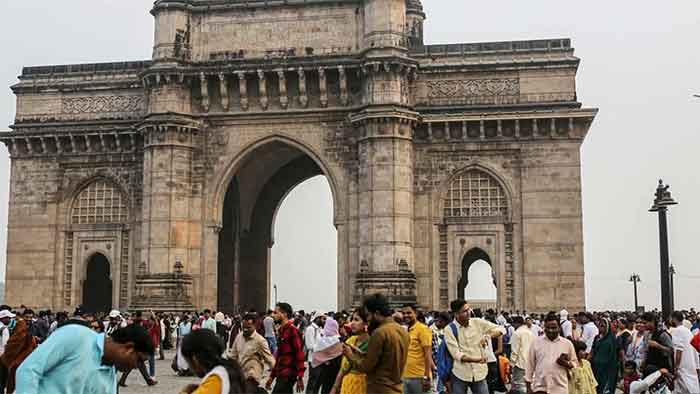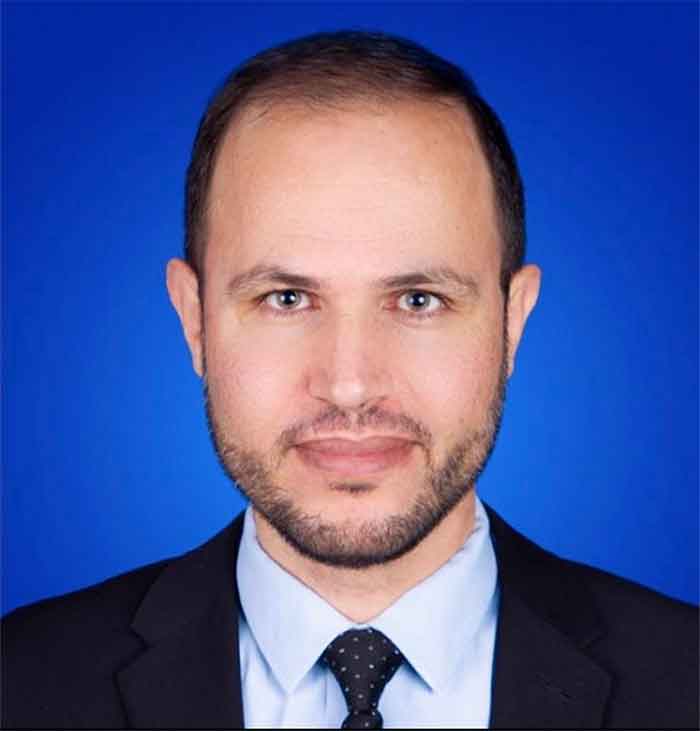
Dr Ganesh Devy, linguist and scholar, is perhaps too optimistic about Mumbai playing a big role in making an intellectual contribution to the idea of civilisation.
He made the plea in two lectures delivered at the Asiatic Society of Mumbai earlier this week. Mumbai had played a big role in making the world aware of Indian civilisation in the 18th and 19th centuries starting with work by orientalist William Jones, founder of the society.
Unfortunately, Mumbai’s reputation as an intellectual centre has rapidly declined in the last few decades even as there is an ugly and vast accumulation of wealth with unacknowledged exploitation of the labouring class.
Aroon Tikekar , a former president of the Asiatic society itself, focussed on the theme in his book in 2009 The rise and Decline of a Culture of Thinking” . To quote a bit from his argument – de-intellectualisation is a product of the engagement of university and college teachers in widening their CVs without doing enough research, of editors in bringing success to their newspaper by valorising market values, of writers in maintaining silence and artists accepting awards.
Just a few feet from the Durbar Hall where Mr Devy spoke there is the head office of the Central library.. This library is supposed to be a depository of all the books published in India in all languages and it is duty bound to give free access to citizens. But it simply does no exist, except for a few books which are visible in the steel and glass cupboards in the halls at the entrance but I have never seen one being opened in the last few decades.
Most of the books lie scattered in godowns in several places in Mumbai and one can bet that much of our intelligentsia is not even aware of this huge loss to the public, apart from gross derelection of duty by the authorities.
A new building of the library in Kalina is ready and awaiting opening for several years and is mired in a real estate scandal. Do we need any further instance of the decline of learning ?
Mr Devy has some endearing qualities, he is no irovy tower intellectual, he has worked among people on the margins in rural areas, his most significant contribution is to make us aware of India’s rich but declining linguistic heritage. He has a good understanding of Indian culture. He is very humble, informal in his lectures, deceptively simple with his learning, speaks without any notes or text which is such a relief from some speeches which can be very boring with their texts.
In a way he is a contrast to Pratap Bhanu Mehta who spoke at St Xavier’s college in Mumbai. A good lecture but one was disappointed to hear him saying he is not being ashamed of living in the ivory tower league or something to that effect definitely. One would think this approach is the real bane in a way. This does not detract from Mr Mehta’s good qualities, one must point out.
Mr Devy goes all over India, talks to young people and even at the Asiatic lectures he occasionally walked from the dais to respond to to young people asking questions.
He takes subtle digs at undemocratic forces. He seems to have too much confidence in cities as a civilising force, cities played that role in the past but this is no longer as capitalist forces have hollowed out intellectual, democratic life. That is why David Harvey’s emphasis on ordinary people’s Right to the City is so important but most urban thinkers, administrators are not even aware of such concepts, Kumar Ketkar, Rajya Sabha member, presided on the second day and Rajani Bakshi on the first.
It is not just intellectual decline. It is physical and so visible and one can also smell it literally even in the wonderful heritage area. If one walks from Hutatma Chowk to the Town Hall building of Asiatic, one is overpowered by stink from the municipal garbage vans parked outside Horniman Circle garden. Even the lovely garden is now inaccessible and will remain so for long because of the so called beautification project.
Next to the Asian society premises one can see a very anachronistic, faceless new building come in the heritage INS Agre Naval establishment compound named after Shivaji’s admirable admiral.
Near Fountain, a lot of wreckage lies in the former CTO central telegraph office heritage premises as in Elphinstone college- archives department compound. The swachha bharat campaign should first clean up the mess in government’s own buildings.
To come back to Sir William Jones (1746-1794) , he is best known for his famous Third Discourse of 1786 in which he proposed that Sanskrit’s affinity to Greek and Latin could be explained by positing a common, earlier source, one known today as Indo-European. This brilliant thesis laid the groundwork for modern comparative linguistics.
Now about some other recent events.
I thought this was a very important part of the interview Mr Zubin Mehta gave to Karan Thapar recently. He said on August 15 he saw from his hotel window that a million people had gathered at the Gateway of India in Mumbai the whole day and in the evening he saw them going back to Churchagate to catch a train. He did not elaborate but he suggested that he was highly impressed by their peaceful behaviour and this is very significant.
It shows the innate goodness of common people. They came on their own, so peacefully
And here we came to a more basic issue. Why is our government increasingly so afraid of common people, creating every hurdle in the most peaceful little marches over short distances for the most just demands. Just a few days before the triumphant landing on the moon, an utterly peaceful little march on science day in Mumbai was thwarted by the police. Clearly, people are in no mood for revolt or destruction of property despite great injustice.
The police probably know in their heart of hearts, they do understand psychology to some extent despite their other failings. Left to themselves, they would not prevent such marches. But apparently, they are under pressure from higher ups and live amidst great insecurity themselves.
I liked the expression disaster management and rescue operation used by Mr Dipankar Bhattacharya in Mumbai with regard to efforts to deal with the threat to the functioning of democracy posed by Mr Modi and others.
Mr Bhattacharya is the general secretary of the Communist Party of India ( Marxist Leninist) Liberation it was a good initiative on his part to have had an interaction with some smaller political parties and activists in Mumbai yesterday on the eve of the India meeting.
Different political parties should similarly interact with other parties at different venues for a healthy exchange.
Mr Bhattacharya said Dr Ambedkar should prove a great source of mobilisation along with Bhagat Singh. Dr Ambedkar had been limited to the role of a Constitution maker and ushering in of reservations. He was also being deified much against his teachings. His ideas on economic equality had been pushed into the background and this heritage has to be revived.
There should have been a converge in 1937 of Dr Ambedkar’s movement for social emancipation with the anti zamindari agitation of other parties. He said Bhagat Singh was being coopted by the BJP and misinterpreted to spread wrong information about Nehru and Gandhiji. He was being reduced to a coffee table book figure, shorn of all revolutionary thoughts of his.
J.P. Nadda had also indicated that the BJP wanted to impose a one party rule in the country.
Mr Bhattacharya was also right to suggest that big events are important in politics but these have to be sustained through continuing work . In this context I read an interesting article about the March on Washington , August 28 marked its sixtieth anniversary. The article pointed out the historic role of the March but this alone cannot sustain a movement. Much of the economic equality agenda of that March had been diluted in the last few years. The struggle has to be not only against racism but also deepening economic inequalities.
Having heard political speeches for long, one feels our leaders need to catch on to recent topical events which are so relevant, instead many resort to absolute platitudes.
Just the day before this meeting there was a major news disastrous for Mumbai’s future, the Central government now wants to take over the planning for Bombay throwing to the winds all ideas of decentralisation and Constitution amendment and in the process humiliating local democratic bodies. The important news was carried by only one paper. There has been little reaction except from Uddhav Thackeray. The local leaders of other parties present yesterday did not take up the issue.
About the Asghar Ali Engineer memorial lecture delivered by Mr Pratap Bhanu Mehta mentioned above. I knew Mr Engineer for several years . His rebellion against Bohra orthodoxy was remarkable. As also his liberal interpretation of the Islamic scriptures which does not figure much in discourse these days. During his time secularism was seen mainly as tolerance for other religions, he emphasised the important of respect , not just tolerance. Mr Mehta went further and said people should transcend their religious identity like Dara Shikoh who was executed by brother Aurangzeb . Dara sought translation of the Upanishads in consultation with the pandits of Varanasi.
This apart Mr Mehta was a bit abstract in his speech, possibly because of the sensitive nature of the theme of secularism.
Vidyadhar Date is a senior journalist and author of a book on public transport
















































